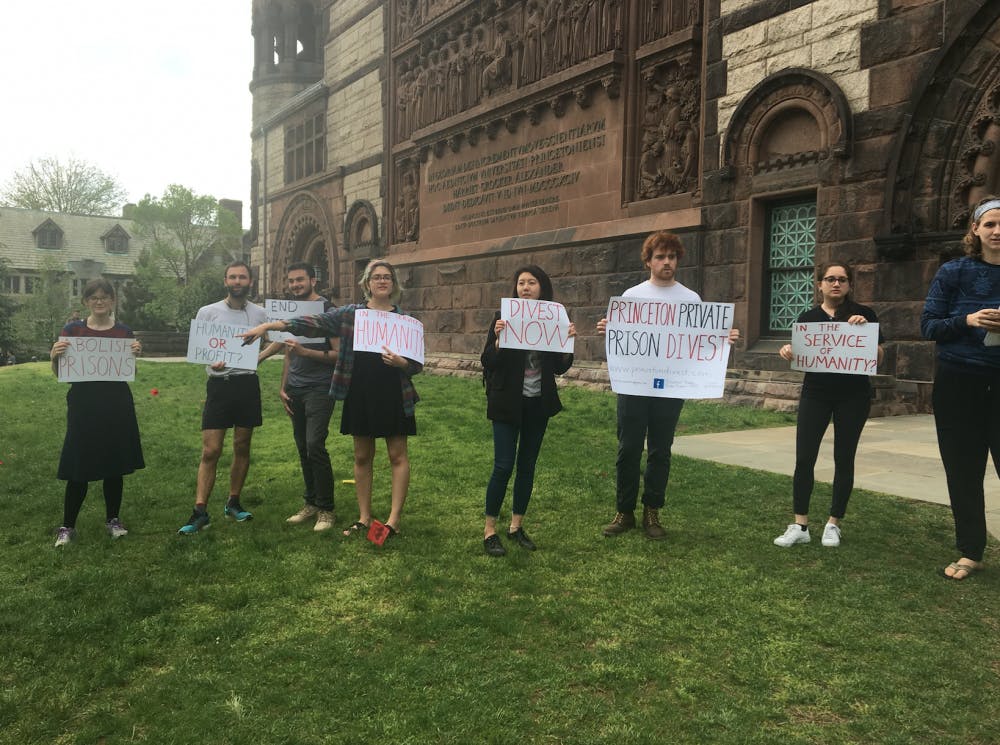The Princeton Private Prison Divest Coalition held a demonstration outside of Alexander Hall on Thursday. The protest, which follows a PPPD walkout at a Council of the Princeton University Community meeting on March 27, was aimed at showing prospective freshmen that the University community is concerned about mass incarceration and anti-immigration polices, as well as reminding administrators that the coalition will continue to organize for full private prison divestment.
Participants in the protest held up signs and handed out papers outlining PPPD’s mission. In these handouts, PPPD listed a meeting with the University’s Board of Trustees as its primary goal and also noted that they seek “formal divestment and dissociation from private prison and detention corporations.”
The handouts also provided general information on private prisons and faulted private prisons for incentivizing incarceration and posing issues to inmate and public safety. They stated that PPPD believes “that conditions in both private and public prisons are often degrading, inhumane, and unconstitutional” and that “the problem is exacerbated with private prisons, which are exempt from the Freedom of Information Act, and thus do not have to provide public records of prison operations.”
“Primarily [the protest] is to show the campus community that this is an issue that people continue to care about,” Micah Herskind ’19 said. “Part of this is to show that there are still people on the ground who really care and are going to continue to spread the message as we also pursue other channels.”
“There are a lot of administrators in [Alexander Hall] right now and a lot of students that might be coming here next year, and I think we want to show them that Princeton can be a place where people care about issues and justice and human rights,” Herskind added.
“Unfortunately, by 2019, 25 percent of black Americans who are going to be high school seniors will have grown up with an incarcerated parent,” another organizer said. “I can’t imagine what that’s like, but I’m sure it has an adverse effect on your ability to educate yourself. And for an institution that claims education as its mission, I don’t see how we can support the carceral system in any form if it’s so racially charged.”
Organizers at the event emphasized that the protest’s proximity to the tents set up for Princeton Preview was not to discourage prospective students from attending the University, but to demonstrate the kind of activism that is happening on campus.
“This is not at all a way to try to push people away from Princeton,” Herskind said. “If anything it’s saying, ‘come to Princeton, demonstrate, and act with us.’”

The student groups that comprise the PPPD Coalition include Students for Prison Education and Reform, the Alliance for Jewish Progressives, the Black Justice League, the DREAM Team, the Muslim Advocates for Social Justice and Individual Dignity, the Princeton University Latinx Perspectives Organization, and the Princeton College Democrats. The coalition’s primary goal is to call on the University to divest and dissociate from private prison and immigrant detention corporations.
Although University President Christopher Eisgruber ’83 has said that the University is currently not invested in private prisons, the group requests a formal statement from the Board of Trustees instructing the Princeton University Investment Company not to invest in the industry at any point.









